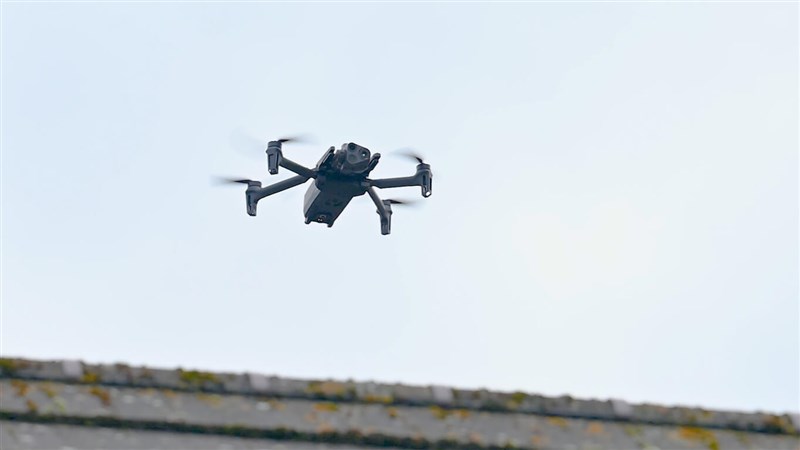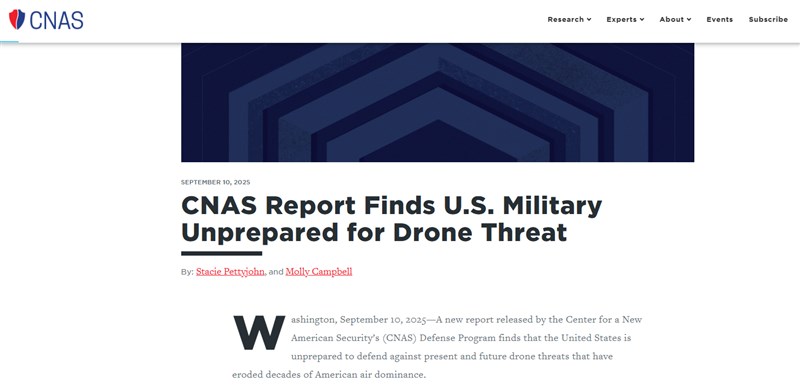
Washington, Sept. 10 (CNA) The U.S. Department of Defense needs to "swiftly develop counter-drone capabilities," as American forces are unprepared for current threats from low-cost drones in the Middle East or in potential conflicts with China over Taiwan, a U.S. think tank said Wednesday.
U.S. air dominance is being undermined by drones used as mass precision weapons, as seen in the Middle East, the Washington-based Center for a New American Security (CNAS) said in a report released that day.
The report, authored by CNAS Defense Program director Stacie Pettyjohn and research assistant Molly Campbell, analyzed American combat operations in the Middle East to assess if the United States is prepared for future drone threats, especially from China.
Since 2004, Iran-produced drones have provided Tehran-backed proxy forces with cheap precision weapons more accurate than missiles or rockets, imposing disproportionate costs on the U.S., the report said.
U.S. troops have used missiles costing up to millions of dollars to take down drones worth US$50,000, which CNAS said is not cost-effective or sustainable.
The report described China as Washington's "foremost strategic threat," and stated that the People's Liberation Army "is rapidly advancing its drone capabilities by developing more autonomous systems and acquiring them at scale."

CNAS conducted a tabletop exercise to examine American capabilities against Chinese drone attacks if a protracted war over Taiwan took place, with U.S. forces operating from a Japanese outlying island and the Philippines, the report said.
The exercise showed Chinese drones pose a very different threat than those seen in the Middle East or Ukraine. Given the Indo-Pacific's vast distances and geography, sustained drone attacks could suppress U.S. forces and overwhelm active defenses, such as jammers, missile interceptors and high-power microwaves.
CNAS recommended that the U.S. build large stockpiles of proven counter-drone systems and invest in mobile, easily repositioned defenses to protect forces across the region.
"Without deep magazines of substantially enhanced counter-drone capabilities, the United States risks having its distributed warfighting strategies overwhelmed by massed Chinese drone attacks, and could lose a war over Taiwan," the report said.
- Cross-Strait
Taiwan takes prudent stance after China probes top general Zhang Youxia
01/29/2026 09:32 PM - Politics
Taiwan, U.S. look to expand AI chip lead with Micron support: Lai
01/29/2026 09:22 PM - Society
Taiwan aims to help foreign professionals settle long term: NDC
01/29/2026 09:00 PM - Cross-Strait
Two Taiwan prosecutors questioned by Chinese state security in Henan: MAC
01/29/2026 08:48 PM - Society
Olive oil importer fined over mislabeled products, 3,202 bottles recalled
01/29/2026 08:39 PM